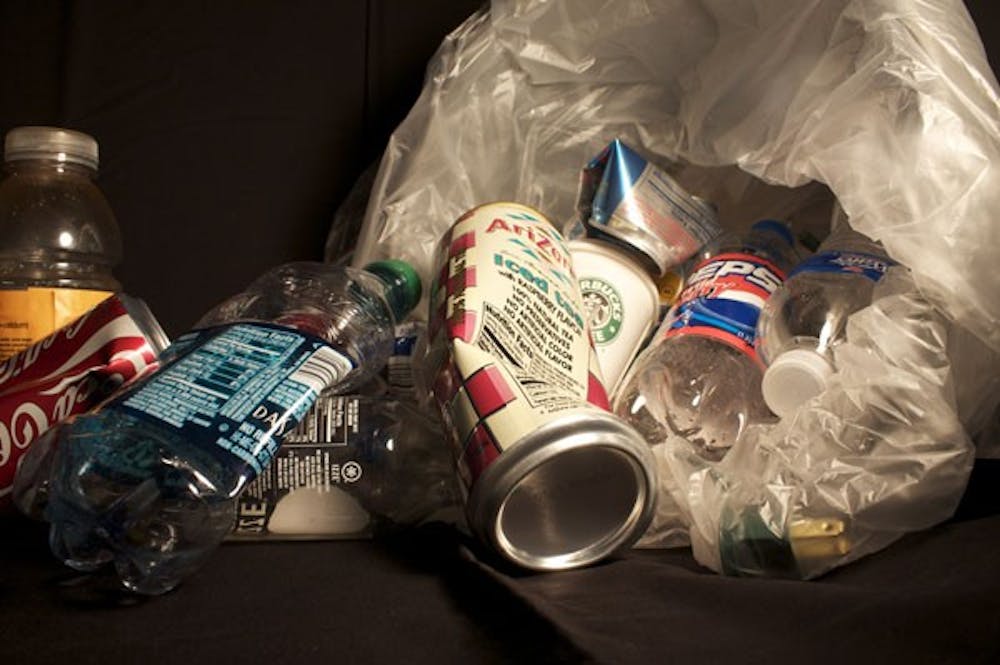Recent and upcoming changes to on-campus recycling policies have prompted ASU officials to educate students on reducing contamination rates in hundreds of new Tempe-campus recycling bins.
By pairing nearly every trash can on campus with a recycling bin this semester, the University is attempting to increase recycling efforts and decrease waste production, Tempe campus recycling coordinator Dawn Ratcliffe said.
The idea is to encourage students to recycle by making it convenient with easily accessible receptacles, Undergraduate Student Government campus environment director Natalie Fleming said.
“It’s important to always have those [paired] stations,” she said. “If you have even one trash can not accompanied by a recycling bin, anyone in that immediate area will automatically not recycle.”
But increasing recycling alone is not enough.
Contamination of recyclables with liquids and other trash is a problem because if contamination levels are too high, the entire bin must be thrown out, Fleming said.
That’s where education comes in, said industrial engineering sophomore and student worker in the Sustainable Business Practices Office Alex Davis.
“New people come on campus every year, so we have to maintain education constantly,” he said.
One of the most common contaminants on campus is soft plastics, including plastic bags and plastic cups from places like Starbucks, Ratcliffe said.
“The lids can be recycled, but the actual cups cannot, and a lot of students don’t realize that,” she said. “Now that the bins are right next to each other, all they have to do is remove the lid and toss the cup in the trash and the lid in the recycle [bin].”
Glass being placed in recycling containers is also a frequent occurrence. Though glass is recyclable, it can’t be mixed with other recyclables and must be placed in separate receptacles, according to the city of Tempe.
Radcliffe said the University’s goal is to have less than 10 percent contamination across campus, so that every bin can be properly recycled.
“While contamination is lower in some areas than when we initially started, it’s still over 20 percent in residence halls,” she said. “While most students in our residence halls support recycling, the recycling rates are not reflecting that.”
The opposite problem also occurs because students often throw away items that can be recycled, such as pizza boxes.
“For a long time we couldn’t accept pizza boxes, and we worked so hard to let people know that,” Fleming said. “Now we can, and that’s one message need to get out.”
Waste Management and the city of Tempe are working to add more items to the list of recyclable items, Ratcliffe said.
A date has not yet been determined for the expansion, but Ratcliffe said it will be very soon and “much more inclusive.”
Davis said he encourages students to be aware of what items can be recycled, as it’s an easy way to create a sustainable campus.
“Recycling is important because it conserves the resources we have and reduces landfills,” he said. “It’s a tangible solution to sustainability, and it’s something everyone can participate in.”
Reach the reporter at keshoult@asu.edu





